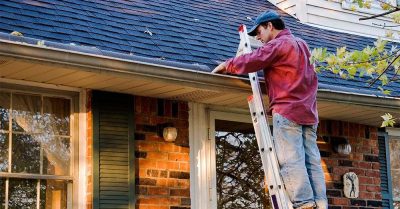
Homeowners are encouraged to relax from the stress of the outside world by spending time within, which evokes feelings of serenity. Put your indoor air quality first to create a true haven in your house.
Smoking habits and construction materials are just two examples of the many sources of indoor air pollution. Although preventive measures like smoking solely outside can reduce these pollutants, substances from unidentified sources might still be present.
Start by having your home’s air quality tested, either with a do-it-yourself kit or by hiring an expert. Here are six techniques that can be used to gradually purify the atmosphere in your home.
Get a Home-Wide Air Purifier
The air conditioning system in a modern home has two sides. Problems may occasionally be caused by our central heating and cooling system, especially if the system’s ducts are unclean or have mold growing in them. However, you can also add a whole-home air purifier to your HVAC system to make it the focal point of your air-quality improvement endeavor. Whole-home air purifiers can do the following, to name a few:
- Cut down on pollen and animal dander. You can prevent allergic reactions and triggers by lowering these airborne irritants.
- Eliminate viruses, germs, and mold. Your family may be at risk for health problems from all of them.
- Minimize chemical emissions and smells. Your home will have cleaner air thanks to the removal of odor-causing substances and chemical emissions.
A whole-house air purifier can significantly improve the quality of the air in your house and might not be as costly as you may believe.
Regular HVAC maintenance
A twice-yearly servicing, one before summer and one before winter is ideal for your HVAC system. In this manner, you’re ensuring that everything is operating as it should and managing the system’s efficiency.
Schedule professional inspections at least twice a year. Clean the ducts and replace air filters on a regular basis. A well-maintained HVAC system can perform a lot of the work for you and drastically lower indoor pollution.
The accumulation of dust, filth, and moisture by the air filters of an HVAC system can lead to the development of microbial growth on internal components. Consequently, a well-maintained system will result in significantly cleaner indoor air. An AC repair Fort Collins expert can also provide guidance on how to properly maintain your HVAC system to ensure optimal performance and longevity.
Purify Your Air Ducts
You can still have a problem even if you have replaced the filters in your HVAC system; the ducts of your system could be the cause. Your ducts could have mold, dust, grime, animal fur, rat droppings, and other nasty elements.
If your house is older, these could have gathered over many years. The materials cause airborne pollution, which your system could be spreading around your house without your knowledge. It’s vital to regularly and professionally check and clean the HVAC ducts in your house. Doing so will help to lower pollution; clean ducts will also enable more effective operation of your system by distributing air.
Try Natural Air Purifiers
An unpleasant odor will often trigger you to notice poor indoor air quality. Unfortunately, the synthetic compounds in air freshener sprays help to worsen air quality. Think about setting natural air fresheners all about your house.
For instance, coffee has a strong, pleasing scent that makes a superb nullifier. To emit a fresh and warm aroma, you might also make cookies. Remember that you should switch on the exhaust fan should the air become too hot.
Fruits are aromatic enough to clean your house environment. To neutralize the smell, keep a basket on the kitchen counter and arrange citrus peels by the garbage disposal. Later on, recycle and turn them into compost.
Allow Fresh Air In
Open your windows wide many times a day to let stale air out and let fresh air in, even in cold or gloomy weather. Open internal doors to let air flow across your house for best ventilation, therefore lowering indoor pollutants and enhancing airflow.
Although many indoor plants are well-known for their ability to filter pollutants and convert carbon dioxide into oxygen, new research points to their possibly less importance in improving air quality than first believed. Particularly if overwatered, plant soil can actually house mold, chemicals, and bacteria; plant leaves also commonly gather dust that might aggravate your allergies.
Endnote
Remember that the health effects of the air you breathe are cumulative and cover not only the air in your house but also at your place of employment, outdoors and school. Each of us can help to breathe better indoors; nevertheless, the reasons individuals should do this, including the consequences of climate change and the ubiquity of some chemicals in products, won’t improve without major structural adjustments.








